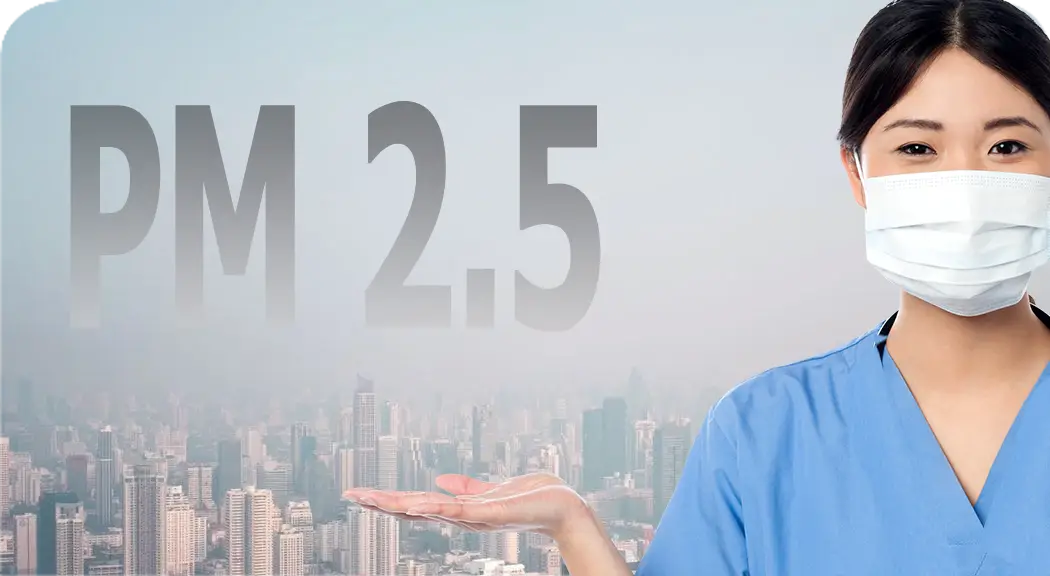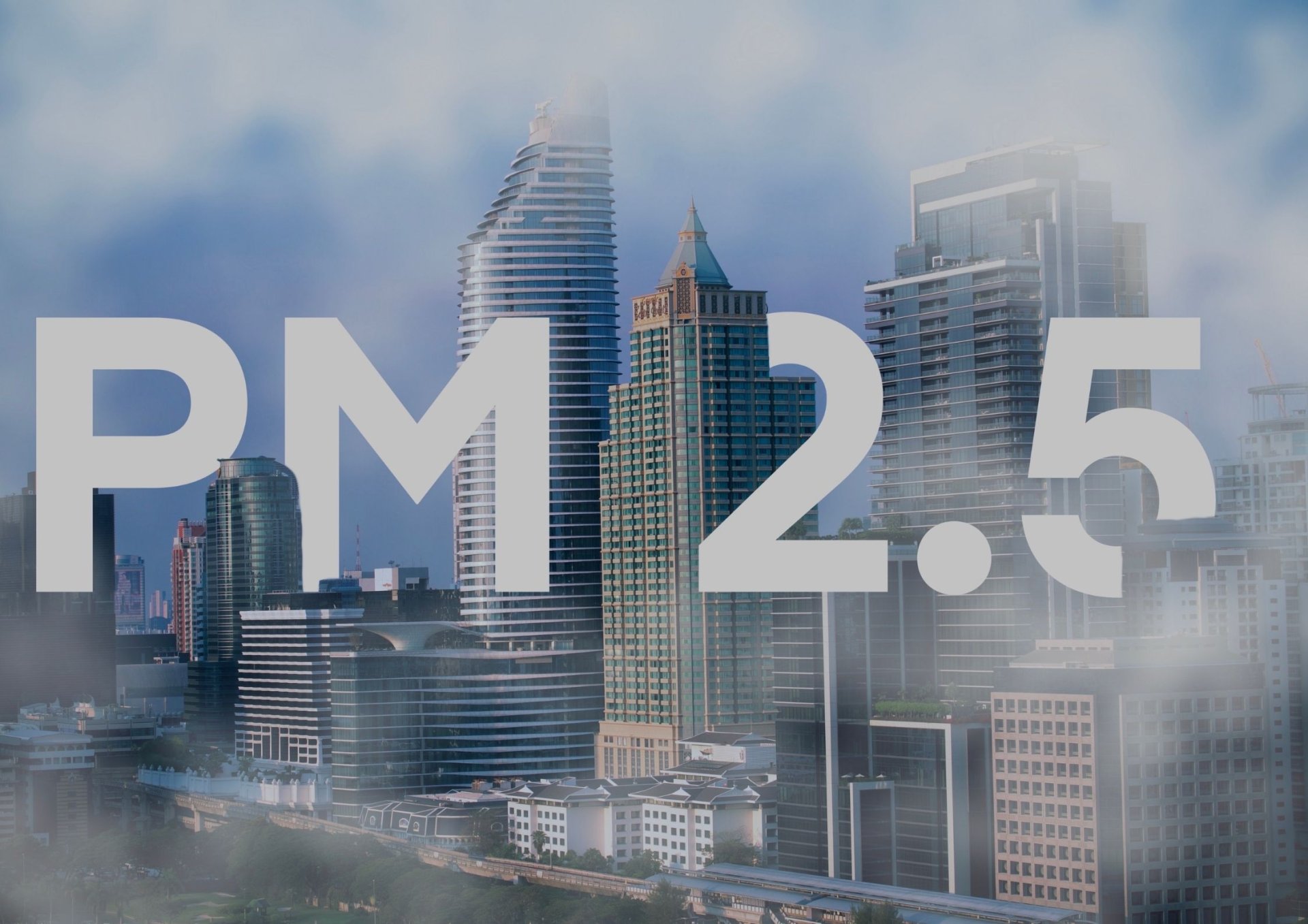How to take care of your health during the PM 2.5 crisis with dietary supplements


The Silent Threat: PM2.5 and Its Impact on Your Health
Currently, few things pose as serious a threat to our health as PM2.5 pollution. This tiny dust particle may be minuscule in size, but its impact is far from small. Measuring only 2.5 microns, or roughly 1/25th the width of a human hair, PM2.5 is so small that even our nasal hairs cannot filter it out. Once this microscopic dust infiltrates the body, it becomes a breeding ground for free radicals. It then spreads throughout the respiratory system, from the bronchial tubes into the bloodstream, and is subsequently transported to various organs. This can induce inflammation throughout the body and is a significant precursor to a myriad of serious illnesses.
Furthermore, the World Health Organization (WHO) has classified PM2.5 as a Group 1 carcinogen, making it one of the top eight causes of premature death globally. It also increases the risk of chronic diseases such as stroke, chronic obstructive pulmonary disease (COPD), acute lower respiratory infections, ischemic heart disease, and lung cancer. In addition, doctors and experts from the Dermatological Society of Thailand have stated that these tiny dust particles are so light they can remain airborne and can directly enter our bodies through the skin. Research on the effects of PM2.5 on the skin indicates that it can impact skin health, with symptoms categorized into two stages:

Here's a breakdown of the two stages of PM2.5's impact on your skin, followed by crucial prevention tips and beneficial nutrients:
Impact of PM2.5 on Skin
- Acute Stage: This tiny dust directly damages epidermal cells, leading to inflammation and irritation of the skin.
- Chronic Stage: As free radicals, these tiny dust particles severely affect skin cells, disrupting cell formation processes. This can cause premature skin aging, dark spots, and a reduction in the skin's immune function.
Protecting Yourself from PM2.5
Given these risks, protecting yourself from PM2.5 is extremely important right now. Here are some simple health tips:
- Stay Indoors: Whenever possible, remain inside buildings.
- Use Air Purifiers: Utilize air purifiers to help trap these tiny dust particles indoors.
- Outdoor Precautions: If you must go outside, avoid crowded areas with poor ventilation.
- Apply lotion or cream to your skin.
- Wear a dust-filtering mask.
- Wear glasses.
- Dress in protective clothing that covers your body.
- Avoid outdoor exercise to minimize PM2.5 intake.
Nutrients That May Help Combat PM2.5's Toxicity
Research also indicates that certain nutrients possess properties that can help counteract and reduce the toxicity of PM2.5:
- Coenzyme Q10 (CoQ10): This vitamin-like substance is crucial for basic energy production in various body cells. It's a highly effective antioxidant that helps prevent free radicals from entering cells, which are a cause of various diseases.
- Vitamin C: This vitamin helps fight free radicals and reduces inflammation that may arise from PM2.5. Therefore, it's recommended to seek supplements that provide both Vitamin C and other potent antioxidants, such as Grape Seed Extract. Grape seed extract contains a high amount of antioxidants, including OPCs (Oligomeric Proanthocyanidins), which can fight free radicals up to 20 times more effectively than Vitamin C and 50 times more effectively than Vitamin E.
- Beta-Carotene: Beta-carotene contributes to the efficient functioning of the lungs and is a precursor to Vitamin A, which supports the respiratory system and the body's immune system. It can be found in tomato extract.
- Omega-3: Clinical studies in adults and elderly individuals living in areas with high PM2.5 pollution found that receiving 2 grams of fish oil per day helped reduce the adverse health effects of PM2.5. So, in addition to eating marine or freshwater fish, consider a quality dietary supplement to help care for your health during this PM2.5 crisis.
While current research on specific nutrients and PM2.5 is not yet extensive, many studies suggest that these nutrients contribute to overall body health, particularly supporting the immune system and enhancing the function of various bodily systems. At the very least, they can help maintain a strong internal balance, enabling your body to better cope with the silent threat of PM2.5.
Refences
- บทความวิชาการ, “ฝุ่น PM 2.5 กับโรคสมอง”, เรืออากาศโท นายแพทย์กีรติกร ว่องไววาณิชย์, อายุรแพทย์สมองและระบบประสาท, ศูนย์สมองและระบบประสาท, โรงพยาบาลกรุงเทพ
- บทความสุขภาพน่ารู้, “ฝุ่น PM 2.5 กับผลกระทบทางผิวหนัง”, แพทย์หญิงจันทร์จิรา สวัสดิพงษ์, ผู้ช่วยผู้อำนวยการด้านการประชาสัมพันธ์องค์กร, สถาบันโรคผิวหนัง, กรมการแพทย์
- ฝุ่นพิษ PM 2.5 เยียวยาด้วยอาหารรักษ์หัวใจ, ผศ.ดร ฉัตรนภา หัตถโกศล, ภาควิชาโภชนวิทยา, คณะสาธารณสุขศาสตร์, มหาวิทยาลัยมหิดล